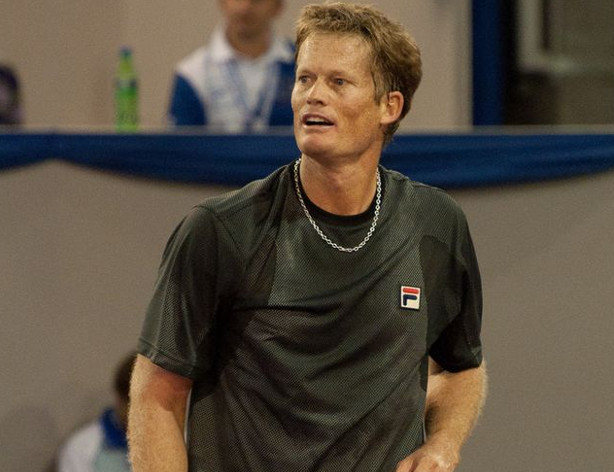
By Richard Pagliaro | Wednesday, September 7, 2022
Frances Tiafoe was once a cookie monster and now he's a major number cruncher.
Tiafoe chewed up ninth-seeded Andrey Rublev 7-6(3), 7-6(0), 6-4 to become the first American man since Andy Roddick in 2006 to reach the US Open semifinals.
More: Tiafoe Tears Into US Open Semifinals
Former Top 10 pro and Tiafoe coach Wayne Ferreira, who once partnered Roger Federer at Wimbledon, has been instrumental in Tiafoe's transition from a junk-food junkie to a fitter professional with a fierce hunger to succeed.
Speaking to the media after Tiafoe's US Open triumph over Rublev, Ferreira said he focused on conditioning, diet and proper practice when he first began working with Tiafoe.
"It seems simple, but he liked a lot of candy and chocolates and cookies. He'd eat at unusual times," Ferreira said of Tiafoe. "He missed breakfast a lot. Didn't really have a good set of times on how when to eat before matches, what to eat after matches. You need a little guidance on that side, and he's done well on that side of it. Practicing, it's about investing and putting in the best practice you can.
"We don't practice long, because I'd rather that he practice properly. So we try to go out there and do the best that we can for the time we are doing it. We always try to work on specifics, things to improve. It's just being professional. He wasn't, in my opinion, was not really professional enough."
Times have changed and Tiafoe has transformed himself into a fitter, smarter and more mature player.
The 22nd-seeded American has shown all that—as well as his entertaining all-court game—knocking out three seeds in a row: 14th-seeded Diego Schwartzman, second-seeded Nadal and ninth-seeded Rublev.
Tiafoe has been at his best at crunch time, posting a 6-0 tiebreak record in New York while winning four of five matches in straight sets.
"We're working very hard on him banging the serve as hard as he can. He has a great serve, can hit it really, really hard," Ferreira said after Tiafoe torched 18 aces against three double faults in his quarterfinal win. "We were working really, really hard on it, but we are not quite there yet at all. Because 50% serve average is poor. If he could get himself up into the mid-60s where a lot of the guys are, the Kyrgioses, in the 70s, take him to a whole other level.
"That part of his game is better but it's still something we are going to spend a lot of time on improving."
When Ferreira started working with Tiafoe he saw a little bit of his younger self in the man from Maryland.
"I think I helped him because I played and I went through the issues of being relatively talented and being lazy, and then finding the right team, people behind me pushing me to do the right thing day to day with the food, practicing and with the fitness and gym work," Ferreira said. "That's something he had to really change. He had to really improve the food. Food intake was terrible at the beginning. The effort on the practices and on the court wasn't good enough.
"It's taken time for us to get gradually to where we are today. He still has a few things to improve and do better, but it's been a bit of a struggle."
Now, both player and coach are intent on sustaining this role—and reinforcing Tiafoe's aim of being a role model to kids.
"He's always trying to give back to tennis," Ferreira said. "He always wants to, you know, do the best he can for the game in general, especially with, you know, underprivileged and all of that.
"So for him, he wants to be a role model, and this is certainly the right thing and the right way. I always tell him, If you want to be a role model, you have to win tennis matches. This is the key to him. If he can win this tournament, he can be an inspiration for a lot of kids."
Photo credit: Wikimedia Commons